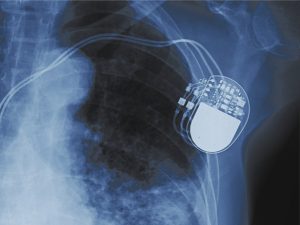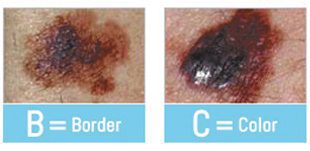By Dr. Aneley Yegezu Hundae, M.D., FACC


Pacemakers
Pacemakers are small electronic devices implanted beneath the skin that help regulate abnormal heart rhythms, such as bradycardia (slow heartbeat). By delivering electrical impulses, pacemakers ensure that the heart maintains a healthy and consistent rhythm, allowing it to pump blood effectively. This life-saving technology has transformed the lives of individuals with heart conditions, enabling them to lead active and fulfilling lives.
The importance of pacemakers cannot be overstated. They alleviate symptoms like fatigue, dizziness, and fainting associated with irregular heart rhythms, improving patients’ quality of life. Moreover, pacemakers prevent life-threatening situations by ensuring the heart beats at a safe rate, reducing the risk of sudden cardiac arrest.
Defibrillators
Defibrillators, commonly known as implantable cardioverter-defibrillators (ICDs), are devices that monitor heart rhythm and deliver electric shocks when necessary to restore a normal heartbeat. These devices are essential for individuals at high risk of sudden cardiac arrest due to conditions such as ventricular arrhythmias.
Defibrillators are designed to detect dangerous heart rhythms and deliver precisely calibrated electric shocks to restore the heart’s normal rhythm. In cases of ventricular fibrillation or ventricular tachycardia, timely intervention with an ICD can be life-saving. By swiftly delivering an electrical shock, defibrillators can effectively stop irregular heart rhythms and prevent the potential loss of life.
Defibrillators have also inherent capacity to be a fully functional pacemaker if and when needed.
Loop Recorders
Loop recorders, or implantable loop recorders (ILRs), are small devices implanted under the skin to monitor heart activity continuously. They are particularly valuable in diagnosing and managing irregular heart rhythms that may occur sporadically or infrequently.
Loop recorders continuously record the heart’s electrical activity, storing data that can be later analyzed by healthcare professionals. This long-term monitoring allows for the detection of abnormalities that might otherwise go unnoticed during shorter-term tests. By capturing essential information about heart rhythm disturbances, loop recorders enable accurate diagnoses and aid in tailoring appropriate treatment plans for patients.
Cardiac implant devices, including pacemakers, defibrillators, and loop recorders, have revolutionized the field of cardiology and significantly improved patient outcomes. These life-saving devices ensure the heart’s optimal functioning, prevent sudden cardiac arrests, and enable accurate diagnoses of heart rhythm disorders. By leveraging advanced technology and continuous monitoring, cardiac implant devices play a crucial role in saving lives, enhancing the quality of life for individuals with heart conditions, and empowering healthcare professionals to make informed decisions. As we continue to advance in medical technology, these devices will undoubtedly continue to play a vital role in cardiac care, offering hope and extending lives.
Dr. Aneley Yegezu Hundae, M.D., FACC
invasive cardiology and advanced heart failure management
Dr. Hundae received his Premedical and Doctor of Medicine Degree from Jimma University School of Medicine. He completed his Internal medicine Residency at Mercer University School of Medicine. His Heart Failure/Heart Transplant fellowship at the University of Miami Cardiovascular Fellowship Program. Cardiovascular fellowship at Baylor University Medical Center.
Board certifications
• Cardiology
• Advanced Heart Failure and Transplant
• Nuclear Cardiology
• Comprehensive Echocardiography
• Internal Medicine
3161 Harbor Blvd, Suite A, Port Charlotte, FL 33952
(941) 235-8892
www.portcharlottecardiology.com
 Southwest Florida's Health and Wellness Magazine Health and Wellness Articles
Southwest Florida's Health and Wellness Magazine Health and Wellness Articles

